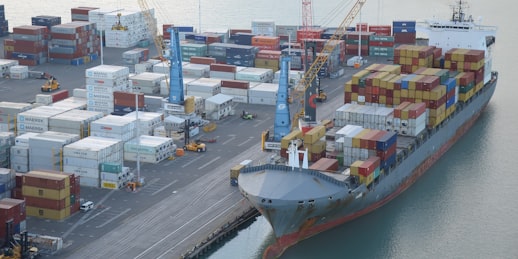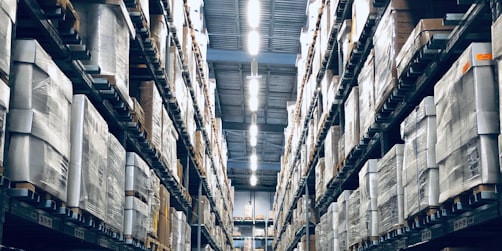
speed reduction
Ships ignore voluntary speed zone, analysis finds

Oceana released the results of an analysis finding ships ignoring a voluntary speed zone in an area south of Nantucket designed to protect endangered North Atlantic right whales.
According to the study, between January 22 and March 6, 2020, over 41% of the 446 ships in the area exceeded the voluntary speed limit of 10 knots, which was established by the National Oceanographic and Atmospheric Administration (NOAA) to reduce the risk of injury and death to these whales.
Other studies have found...
https://safety4sea.com/ships-ignore-voluntary-speed-zone-analysis-finds/
Canada unveils 2020 measures to protect North Atlantic right whales

Estimates show that roughly 400 North Atlantic right whales are left in the world.
The enhanced measures complete previous work over the past several years, to help protect this species from interactions with fishing gear and...
https://safety4sea.com/canada-unveils-2020-measures-to-protect-north-atlantic-right-whales/
UGS in favour of slow steaming for ships

During the annual assembly of the members of the Union of Greek Shipowners, Theodoros Veniamis, President of UGS, provided his comment on the 2020 sulphur cap, which is already in place.
According to Mr. Veniamis, shipping has been called upon to implement a regulation without guarantees of safety and security. He explained that, for this reason, he had frequent meetings with the IMO Secretary-General Kitack Lim, and former Transport Commissioner Violeta Bulc, during which he described the...
https://safety4sea.com/ugs-in-favour-of-slow-steaming-for-ships/
Speed Limits v Optimisation

In this article, Alvin Forster, Loss Prevention Executive, North P&I Club, addresses the issue of speed limits. As he says, this method has positively affected greenhouse gas emissions in shipping, but wonders if, after all, the speed limit is the answer for a greener sector.
Since it became widespread in 2007 in response to increasing oil prices, slow-steaming has already made an impact on greenhouse gas emissions from shipping.
Its apparent effectiveness in reducing the intensity of CO2...
South Korea introduces speed limits and ECAs for ships

In line with the stricter environmental regulations applied in 2020, South Korea has introduced domestically new environmental laws applying voluntary speed limits for ships and emission control areas, according to data provided by North P&I Club.
Speed reduction
The Ministry of Maritime Affairs and Fisheries introduced the “Special Act on Air Quality Improvement in Port and Other Areas ” on 2 April 2019, enforcing the Act from 1st Jan 2020.
The first stage is a voluntary vessel speed reduction...
https://safety4sea.com/south-korea-introduces-speed-limits-and-ecas-for-ships/
Operators Opt for Slow Steaming Amidst Anger at IMO’s Bureaucratic Dilemma

The IMO has decided on a goal-setting approach by member states to decarbonise shipping, rather than progress the proposals put forward by some members for a mandatory speed reduction on vessels and this has angered shipping associations across the globe, says an article published in Loadstar.
Bureaucracy Shows Lack of UrgencyThe strategy, decided last week in London, not to opt for speed restrictions has angered the members of the Clean Shipping Coalition (CSC) who blasted the IMO for its “burea...
http://mfame.guru/operators-opt-for-slow-steaming-amidst-anger-at-imos-bureaucratic-dilemma/
No appetite shown for speed reduction regulation

The IMO met in London this week, in order to discuss how the shipping industry can continue with its decarbonization plan. IMO agreed that a goal-setting approach is the best way to reduce carbon emissions in the short-term, while full details of the approach will be resolved next year.
Specifically, states and NGO’s discussed the details and potential issues of the different submitted proposals, as well as how they would cut emissions and impact states. After lengthy discussions, they agreed...
https://safety4sea.com/no-appetite-shown-for-speed-reduction-regulation/
Vessels’ speed limits to have positive impact on the environment

A newly-launched study focuses on the importance of reducing shipping emissions and its benefits in favour of humans’ health, nature and the environment. The report highlights that a 20% reduction would decrease GHG emissions, as well as curb pollutants that pose great risks on human health, as black carbon and nitrogen oxides.
Accordingly, this study launched by campaign groups Seas at Risk and Transport & Environment is based on existent research that suggests that slowing down ships will have...
https://safety4sea.com/vessels-speed-limits-to-have-positive-impact-on-the-environment/
Reducing ship speeds ‘a silver bullet’ to reduce pollution and save whales

As the International Maritime Organization’s (IMO) environmental work group gathers in London for its annual conference this week, delegates are being urged to consider new regulations to reduce ship speeds.
The IMO’s Marine Environmental Protection Committee’s (MPC) working group on greenhouse gas emissions (GHGs) will consider proposals for short-term measures to tackle shipping’s climate impact, including proposals to reduce ship speeds.
According to new research from environmental groups...
https://theloadstar.com/reducing-ship-speeds-a-silver-bullet-to-reduce-pollution-and-save-whales/